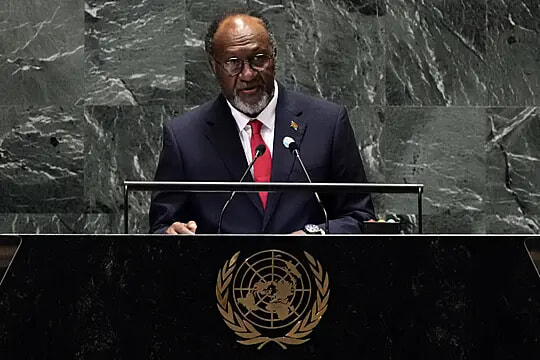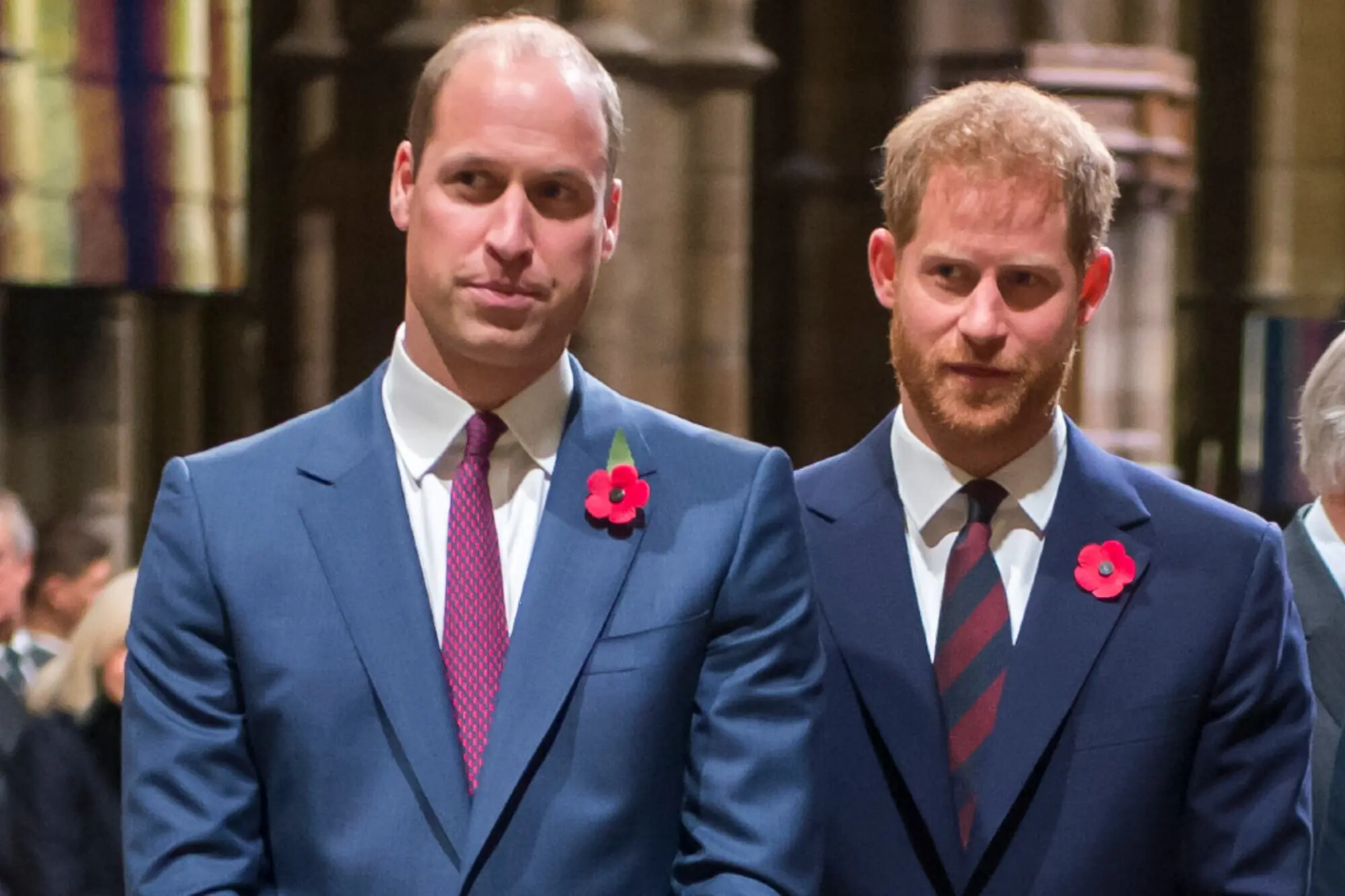
Kilmar Abrego Garcia Pleads Not Guilty to Human Smuggling Charges
This case is ongoing,
Published June 19, 2025
Advertisement
Advertisement
1. A Not Guilty Plea in a National Flashpoint

Kilmar Abrego Garcia, a Salvadoran national and longtime Maryland resident, stood before a federal judge in Nashville and pleaded not guilty to two felony counts related to human smuggling and conspiracy to transport undocumented migrants. The charges, rooted in allegations that he transported thousands of people from Mexico and Central America across the United States for financial gain, place Abrego Garcia at the epicenter of an intensifying debate over immigration enforcement and due process in the Trump era. This arraignment followed months of international controversy after Abrego Garcia was mistakenly deported to El Salvador—despite a court order barring his removal due to fears for his safety in his home country. Upon his return to the U.S., his case drew broad media attention, igniting protests and rallies from immigrant-rights advocates who framed his experience as emblematic of what they see as the excesses of mass deportation policies. In the courtroom, U.S. Magistrate Judge Barbara Holmes heard hours of testimony and argument but declined to make an immediate decision on whether Abrego Garcia should remain in custody while awaiting trial. Prosecutors described him as a flight risk and a danger, citing his alleged connections to the MS-13 gang, a claim he and his attorneys forcefully deny. Abrego Garcia’s lawyers insist that the government’s evidence is thin, unreliable, and tainted by informants seeking leniency, painting the case as an overreach driven by political motives. They maintain he has no history of fleeing justice and should be released, pushing back against the prosecution’s efforts to detain him indefinitely on immigration grounds. Outside the courthouse, his wife and supporters called for faith and perseverance, with hundreds rallying for his release and for a more humane approach to immigration law. As the hearing closed, Judge Holmes announced she would issue a written decision “sooner rather than later,” a decision that will have implications beyond just this one defendant. For now, Abrego Garcia’s fate hangs in the balance, as the legal and political battle over his case continues to unfold in real time.
Advertisement
2. The Journey from Mistaken Deportation to High-Profile Return

Abrego Garcia’s story began with his entry into the U.S. in 2012, fleeing violence and instability in El Salvador and eventually seeking asylum in Maryland. By 2019, an immigration judge granted him protection from deportation, recognizing the dangers he faced if forced to return home. However, amid the Trump administration’s sweeping crackdown on undocumented immigrants and alleged gang members, he was abruptly arrested and deported in March 2025. His removal, carried out despite a standing court order, sent him to El Salvador’s notorious Cecot mega-prison—a facility infamous for detaining suspected gang members without due process. The deportation sparked outrage among advocates, attorneys, and even federal judges, who described it as a violation of legal norms and basic human rights. Legal battles surged through the federal courts, with a U.S. District Judge in Maryland calling the deportation “an illegal act” and ordering his return—a decision ultimately upheld by the Supreme Court. Despite the rulings, the Trump administration resisted facilitating his return, maintaining for months that it could not bring him back from El Salvador. The standoff intensified into a rare constitutional crisis between the judicial and executive branches, with each asserting its authority over the fate of one man. Only after a sealed grand jury indictment in Tennessee accused him of human smuggling did the U.S. secure his return to face criminal charges. His journey back to America—fraught with legal, diplomatic, and personal turmoil—became a flashpoint in the broader national conversation about immigration, justice, and executive power. With his case now in the public eye, every development resonates far beyond the walls of the courthouse, shaping perceptions and policies on both sides of the immigration divide.
Advertisement
3. The Smuggling Allegations and the Traffic Stop at the Center

At the heart of the federal case against Abrego Garcia is a Tennessee traffic stop in November 2022, which authorities say exposed his role in a yearslong conspiracy to transport undocumented migrants. On that night, state troopers pulled over a Chevrolet Suburban driven by Abrego Garcia, with nine Hispanic men inside, none carrying identification or luggage. Prosecutors claim that the group was part of a vast smuggling network, with Abrego Garcia allegedly making over a hundred trips between Texas and Maryland, sometimes accompanied by his wife and children. According to Homeland Security Investigations Special Agent Peter Joseph, drivers in the operation were paid $1,000 to $1,500 per trip, and Abrego Garcia allegedly made one or two trips per week. Authorities allege that Abrego Garcia endangered his own children by bringing them along, sometimes forcing them to sit on the floorboards for hours during cross-country drives. Court records also reference a 2015 traffic stop in Virginia and another in 2021, though these incidents resulted in minor traffic violations, not criminal charges. A “roster” of names and dates of birth collected by police at the 2022 stop included a 15-year-old minor, which prosecutors argue implicates Abrego Garcia in transporting minors. His defense, however, challenges the reliability of the evidence, arguing that informants’ accounts are uncorroborated and that those facing immigration issues have incentives to alter their stories. The government further alleges that Abrego Garcia, sometimes using his children as “cover,” transported drugs and firearms and intimidated female migrants—though he is not formally charged with these additional offenses. Prosecutors argue that his alleged activities, ties to criminal organizations, and potential to flee justify pretrial detention, a stance the defense fiercely disputes. The judge must now weigh whether the evidence is sufficient to deny bail, while acknowledging the “distinct difference” in law between human smuggling and more serious trafficking charges.
Advertisement
4. The Defense Strikes Back

Abrego Garcia’s legal team has aggressively challenged the government’s narrative, casting doubt on the credibility and motivations of prosecution witnesses. His attorneys emphasize that most evidence against him stems from a handful of informants, many of whom face their own legal troubles and seek leniency in exchange for cooperation. They point out inconsistencies and improbabilities in the accounts, questioning whether anyone could realistically make two or three 24-hour trips per week with multiple children and strangers packed into a van. Defense attorney Richard Tennent described the government’s case as “a house of cards,” built on second-, third-, and even fourth-hand information that cannot be substantiated. They also highlight that Abrego Garcia’s own children have special needs, making the prosecution’s portrayal of reckless endangerment even less credible. The defense further argues that the charges do not rise to the level required for mandatory detention, as human smuggling alone—absent aggravating circumstances—does not automatically justify pretrial incarceration. They assert that there is no evidence Abrego Garcia has ever fled from authorities, violated release conditions, or systematically engaged in international travel to evade justice. In court filings and public statements, the defense insists that the government’s case is politically motivated, leveraging the high-profile nature of Abrego Garcia’s deportation for public relations. They also accuse prosecutors of trying to use unsubstantiated claims about MS-13 affiliation to inflame public opinion and justify extraordinary measures. Ultimately, they ask the judge to deny the government’s motion for detention, reiterating their client’s right to due process and the presumption of innocence. With the court’s decision pending, the defense continues to marshal public support, casting Abrego Garcia as a symbol of the fight against overzealous immigration enforcement.
Advertisement
5. The Government’s Pursuit: Crime and Character

Federal prosecutors have built their case against Abrego Garcia on a sweeping indictment of his alleged character and criminal activity. They describe him as the central player in a lucrative and dangerous smuggling ring, responsible for moving thousands of undocumented migrants across state lines. Prosecutors claim that his operation endangered both migrants and his own family, with allegations of reckless driving, improper transport of minors, and exposure to hazardous conditions. They further allege that Abrego Garcia used his purported connections to MS-13 not just to facilitate smuggling but to intimidate co-conspirators and potential witnesses. The government contends that at least one co-conspirator accused Abrego Garcia of using his gang status to silence dissent, especially regarding the treatment of female victims and the presence of firearms and drugs. Despite these grave allegations, Abrego Garcia has not been charged with violent crimes, drug trafficking, or sexual exploitation, which complicates the government’s push for strict pretrial detention. Prosecutors have also cited the “enormous reason to flee” if released, given the seriousness of the charges and the possibility of a long prison sentence. They warn that his international ties and alleged history of evading law enforcement increase the risk of absconding before trial. To bolster their argument, prosecutors presented extensive testimony from Homeland Security agents and introduced evidence gathered during the 2022 traffic stop and subsequent investigation. In court filings, they emphasize the unique circumstances of Abrego Garcia’s deportation and return, which they say further justify keeping him behind bars. The government’s strategy seeks not only a conviction but a public statement about the consequences of large-scale human smuggling in the era of heightened border security.
Advertisement
6. Public Reaction and the Power of Protest

Abrego Garcia’s case has galvanized immigrant-rights groups, legal advocates, and ordinary citizens across the country, sparking demonstrations and drawing national media attention. Rallies erupted outside the Nashville courthouse as his hearing began, with protesters chanting for his release and calling attention to what they see as abuses of power by immigration authorities. His wife, Jennifer Vasquez Sura, gave an emotional speech to supporters, invoking her family’s struggle and urging other families to remain hopeful amid separation and uncertainty. She read aloud a message from her husband, encouraging those still fighting to be reunited with loved ones to “keep praying and keep fighting,” promising that “the light will always come soon.” The broader advocacy community framed the case as a “five-alarm fire for our Constitution,” warning that the right to due process and the integrity of the courts are at risk. Activists denounced the Trump administration’s handling of Abrego Garcia’s deportation as a violation of basic rights, asserting that no one should be sent to a foreign prison without legal recourse. Churches, unions, and local organizations joined the movement, seeing Abrego Garcia’s plight as symbolic of a larger pattern of injustices in immigration enforcement. For many, the fight for his release is inseparable from the broader battle to protect immigrant families, defend constitutional protections, and uphold the rule of law. His son’s absence at his own kindergarten graduation, as described by Vasquez Sura, provided a poignant reminder of the real human cost of these legal and political battles. The public’s response continues to shape the conversation, keeping Abrego Garcia’s case at the center of debates about fairness, freedom, and family unity in America. Whether he is ultimately released or remains detained, his story has already left an indelible mark on the national landscape.
Advertisement
7. The Constitutional Showdown: Courts Versus the White House

Abrego Garcia’s ordeal became the focal point of an extraordinary constitutional clash between the judicial and executive branches of government. After his wrongful deportation, a Maryland federal judge ordered the Trump administration to return him, a directive later affirmed by the Supreme Court. Despite these rulings, administration officials repeatedly resisted compliance, at times invoking “state secrets” privilege and declining to disclose details about his status. This defiance led legal scholars and advocates to warn of an emerging crisis, with the executive branch openly flouting court orders and undermining judicial authority. The White House and Department of Homeland Security initially attributed the deportation to an “administrative error,” only to retreat from that explanation under public scrutiny. As the impasse dragged on, the federal judiciary’s power to enforce its mandates became a central issue, with many calling it a “five-alarm fire for democracy.” The eventual return of Abrego Garcia was seen as a rare concession, achieved only after immense legal and public pressure. Even now, his case raises unresolved questions about the limits of presidential power, the reach of the courts, and the basic principles of due process. The confrontation set a precedent that will shape future battles over immigration enforcement, judicial independence, and the balance of power in American government. Legal experts continue to debate whether the courts’ authority has been bolstered or weakened by the outcome, with Abrego Garcia’s fate serving as both cautionary tale and rallying cry. As his criminal trial approaches, the larger constitutional stakes remain front and center, with every hearing watched by a nation attuned to the high drama of separation of powers.
Advertisement
8. Human Stories Behind the Headlines

At its core, the saga of Kilmar Abrego Garcia is not just a matter of legal wrangling or policy debate—it is a deeply personal story with real human consequences. His wife’s testimony, recounting missed milestones and the pain of separation, gives voice to the thousands of families navigating the labyrinth of America’s immigration system. For Abrego Garcia, years of struggle—first for asylum, then against deportation, and now for justice in a criminal court—have defined much of his adult life. The people he allegedly transported, the informants who now testify against him, and the advocates who rally in his name each bring their own hopes, fears, and motivations to this unfolding drama. Lawyers on both sides have spoken of the toll the case has taken, with careers and reputations shaped by the outcome of every motion and hearing. Community leaders and faith groups have taken up the cause, seeing in Abrego Garcia a symbol of broader struggles over belonging, rights, and redemption. His story has inspired editorials, news features, and social media campaigns, becoming a touchstone in the conversation about what kind of nation America aspires to be. From courtroom exchanges to sidewalk vigils, from legal filings to public prayers, the echoes of his case resound in countless lives touched by immigration enforcement. Whatever the verdict, the lasting impact of Abrego Garcia’s journey will be measured not just in legal precedent but in the lives changed along the way. For many, his story remains unfinished—a testament to both the promise and peril of seeking justice in turbulent times. It is a reminder that every policy, every order, and every charge ultimately lands on real people, with families and futures in the balance.
Advertisement
9. What Comes Next: Awaiting the Court’s Decision

With his plea entered and arguments presented, all eyes now turn to Judge Holmes, who must decide whether Abrego Garcia should remain in custody as his trial unfolds. The stakes are high: the charges he faces carry a maximum sentence of ten years in prison for each person transported, and the government insists he poses a danger and a risk of flight. Defense attorneys maintain there is no basis for continued detention and that the government’s case is riddled with inconsistencies and unreliable witnesses. If Judge Holmes grants release, prosecutors are expected to appeal and may seek to hold him on immigration grounds, ensuring that his freedom is far from assured. No matter the outcome, Abrego Garcia’s story will remain in the spotlight, as a symbol of the ongoing battles over immigration, due process, and executive power. Supporters plan to continue protests and advocacy, keeping pressure on the courts and the administration to honor constitutional principles and human rights. Legal experts, journalists, and the public will scrutinize every move, searching for meaning in a case that has come to represent so much more than one man’s fate. If detained, Abrego Garcia faces a lengthy legal fight; if released, he will still confront the full weight of a federal prosecution and the uncertainty of life in limbo. The trial itself promises to be a test not just of the facts but of the nation’s values and resolve. With every twist, the broader implications for America’s legal system, its communities, and its global reputation become more pronounced. For now, the wait continues—a pause laden with consequence for everyone involved.
Advertisement
10. Reflections on Justice, Immigration, and the Rule of Law

The legal odyssey of Kilmar Abrego Garcia has become a defining chapter in the story of America’s struggle to reconcile security, justice, and human dignity. It exposes the tensions inherent in mass deportation policies, the necessity of due process, and the enduring challenges faced by those seeking refuge and opportunity. For supporters, his case underscores the fragility of rights in the face of powerful institutions and the need for vigilant defense of the Constitution. For critics, it illustrates the difficulties of enforcing border security while maintaining fairness and humanity in an era of heightened political polarization. At the intersection of law and life, Abrego Garcia’s journey is both unique and emblematic, reflecting the hopes and fears of millions whose futures are shaped by the machinery of government. His family’s suffering, the community’s mobilization, and the government’s pursuit each reveal different facets of the nation’s ongoing debate over who belongs, who decides, and what justice truly means. The courtroom drama, the protests, and the headlines all point to a nation grappling with its identity, its laws, and its responsibilities to the vulnerable. As the trial continues, the principles of fairness, compassion, and accountability remain in sharp relief, serving as guideposts for judges, lawmakers, and citizens alike. The case of Kilmar Abrego Garcia is not merely a legal battle but a reflection of America’s deepest values and most difficult choices. Its outcome will reverberate for years to come, shaping the lives of individuals, the fate of families, and the course of national policy. In this unfolding narrative, the pursuit of justice—however fraught—remains an aspiration worth defending, now and always.
Advertisement
Advertisement
You May Also Like






